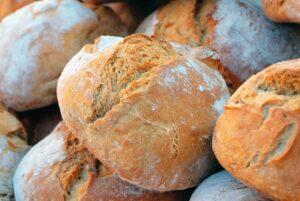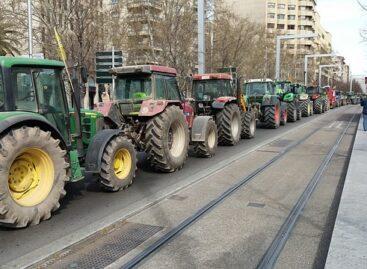There is serious confusion on the domestic grain market, is Hungarian bread still Hungarian?
So far, more than 1.3 billion tons of grain and oilseeds of dubious quality – of which 900,000 tons are corn – have arrived in our country from Ukraine. Due to this quantity, as well as the export licensing procedure announced last year, the grain market has frozen, and producers cannot sell their crops either domestically or for export.

(Photo: Pixabay)
As a result, the spring work can be financed less and less, which threatens this year’s production as a result of the reduced use of fertilizer due to the runaway input prices. In addition to the damage to farmers exceeding HUF 1,000 billion last year, due to poor regulation, they practically do not receive damage mitigation. Unlike other branches of the national economy, they do not get preferential loans, or they get delayed and to a lesser extent, which is now only exacerbated by the freezing of the grain market. Meanwhile, the consumer is forced to buy bread made from Ukrainian wheat.
An ever-increasing amount of grain, primarily wheat and corn, arrives from Ukraine through our eastern border
This in itself would not be a problem if, in accordance with the original promises, this product went on to Europe and North Africa. On the other hand, the majority of the goods received in this way are purchased by Hungarian ethanol and isosugar factories, feed mixers, and Hungarian mills. As a result of the runaway energy and input prices, liquidity problems arose in the sector. The above industries bought a fraction of their annual needs during the harvest, and now they meet their monthly needs not with the goods of Hungarian producers, but with Ukrainian imports. All of this is affecting farmers at a time when Hungary has lost significant export markets as a result of the so-called export licensing system introduced unjustifiably last year. The consequence is clear, the producers cannot sell their stocks and therefore have no money to purchase energy and input materials that have doubled or even multiplied in some cases.
For example, Ukrainian corn of dubious quality changes hands at HUF 75-80,000 per ton
For this reason, the price of Hungarian corn of HUF 120-130, which was more or less in sync with previous world market prices, fell below HUF 100,000, and the same can be observed for wheat, where a price of HUF 110,000 per ton can be observed compared to HUF 140,000. As a result of all this, in recent months, those who were able to sell their produce at all could only do so with a clearly visible 20-25% price reduction. This also increases your own loss. As a result of the unprecedented drought in 2022, farmers suffered damage estimated at HUF 1,000-1,200 billion. As a result of the flawed damage mitigation regulation, the Hungarian damage mitigation system recognizes a fraction of this as damage by applying unrealistically high comparative prices. The current market prices do not even come close to these. It follows from the above that it is no coincidence that HUF 31.5 billion is available for damage mitigation against the 1,000 billion damage.
National Association of Agricultural Cooperatives and Producers drew the government’s attention to the problems in time
In this context, he initiated the reconsideration of the rules of the damage mitigation system, which unfortunately is only now taking place, which will no longer affect the 2023 damage mitigation. He also protested against the export licensing system, unfortunately to no avail. The freezing of the grain market in Hungary requires immediate action, otherwise this year’s production will be jeopardized, farmers will be out of a job en masse, and after livestock breeding, crop production will also decline.
National Association of Agricultural Cooperatives and Producers
Related news
UBM may continue its international expansion
🎧 Hallgasd a cikket: Lejátszás Szünet Folytatás Leállítás Nyelv: Auto…
Read more >







